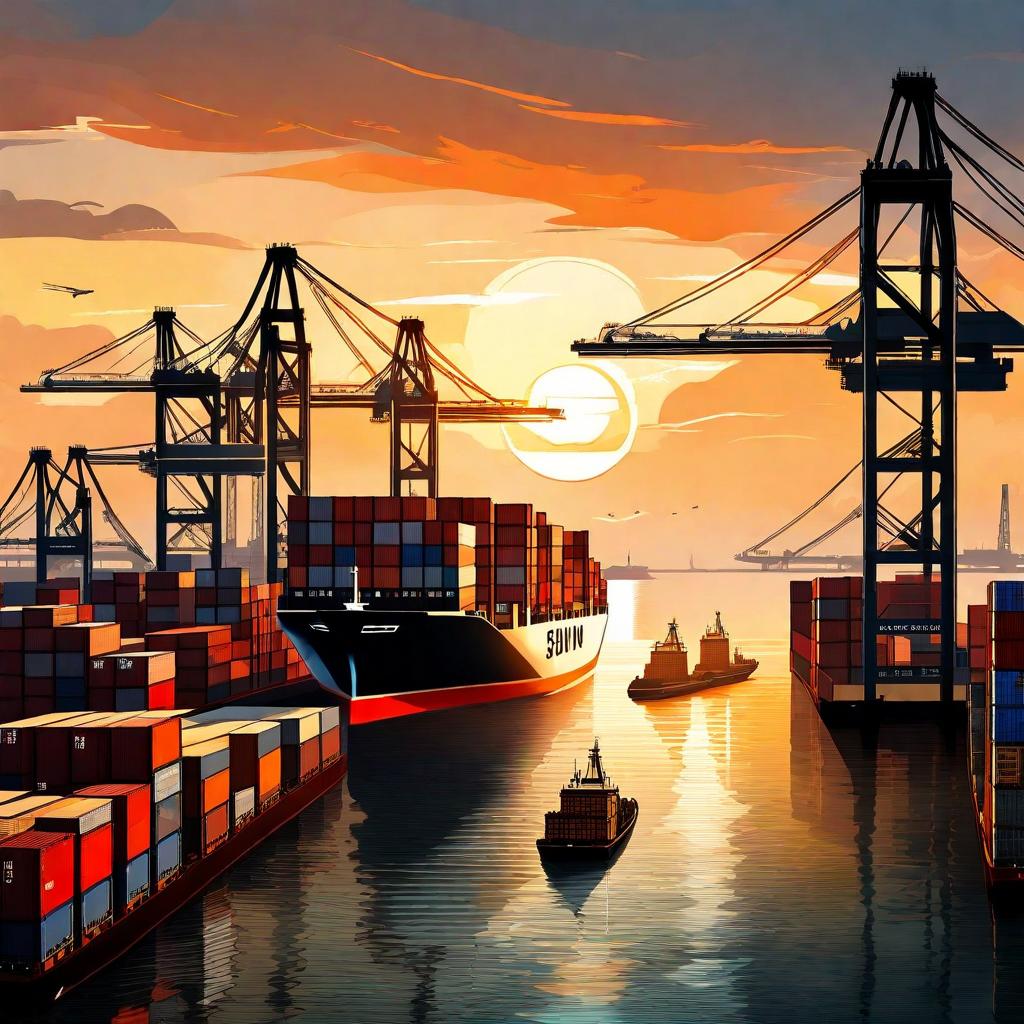Global Trade Trends: How Tariffs and Trade Wars Are Reshaping Economies
The dynamics of global trade have been undergoing significant shifts in recent years, primarily driven by tariffs and trade wars among nations. These developments are having a profound impact on economies worldwide. In this article, we’ll delve into the intricate web of global trade trends and how tariffs and trade wars are reshaping the economic landscape.
The image captures a sprawling international shipping port at dusk. Towering cargo cranes loom over the scene, illuminated by the soft, warm glow of the setting sun on the horizon. The port is a hive of activity, with massive cargo ships docked in the harbor, and stacks of colorful shipping containers in the foreground, ready to be loaded or unloaded. This bustling port embodies the heart of global trade, where goods from across the world converge and depart.
The Impact of Tariffs and Trade Wars
Tariffs, or taxes on imported goods, and trade wars, which involve tit-for-tat tariff increases between nations, have introduced uncertainty and volatility into international trade. These changes have profound effects on economies:
- Disrupted Supply Chains: Tariffs and trade tensions have disrupted global supply chains. Companies have had to rethink their manufacturing and sourcing strategies, leading to increased costs and potential supply shortages.
- Economic Slowdown: Trade wars have the potential to slow economic growth. The tit-for-tat tariff increases can lead to reduced consumer spending and business investment, affecting GDP growth.
- Geopolitical Implications: Trade disputes can have broader geopolitical implications, impacting diplomatic relations between nations. Economic disputes can escalate beyond trade, affecting security and alliances.
Strategies for Navigating Global Trade Uncertainties
Amidst these trade challenges, nations and businesses have developed strategies to navigate this uncertain terrain:
- Diversification: Diversifying trade partners and supply sources can reduce dependency on a single nation and provide a buffer against trade disruptions.
- Negotiations and Diplomacy: Engaging in negotiations and diplomatic efforts can help resolve trade disputes and avoid escalating into full-blown trade wars.
- Investment in Technology: Leveraging technology, such as data analytics and automation, can optimize supply chain efficiency and reduce operational costs.
As nations and businesses grapple with the evolving landscape of global trade, it’s clear that tariffs and trade wars have become central themes in the economic narrative. Their impact, both direct and indirect, continues to shape the global economy, making it essential for stakeholders to adapt and develop strategies that will help them thrive in this ever-changing environment.

